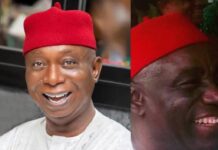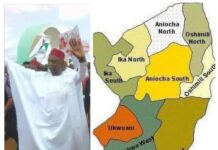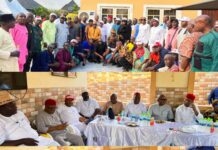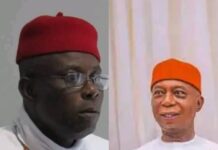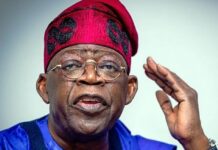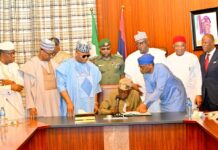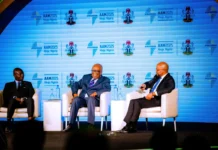By The Political Team of Dr. Chamberlain Nnamdi Dunkwu
The architecture of development in Nigeria has long been constrained by a narrow imagination that locates responsibility almost exclusively within the elected class. This fixation has produced a governance culture where the appointed, though positioned within strategic institutions of power, are often perceived as peripheral actors.
Dr. Chamberlain Nnamdi Dunkwu, KSC, Deputy Chief of Staff (Legislative and Members’ Affairs) to the Speaker of the Federal House of Representatives, is deliberately disrupting this paradigm. By deploying his political capital towards the facilitation of roads construction and rehabilitation among others in Ika Federal Constituency, he demonstrates that governance can be redefined when institutional presence is translated into developmental agency.
These interventions, while infrastructural in appearance, are fundamentally political in significance. Roads are not inert constructions; they are connective tissues of economic life. They reduce transaction costs, expand market frontiers, enable mobility of labor, and integrate marginalized spaces into circuits of productivity. By enabling such connective infrastructure, Dunkwu is in effect weaving a network of socioeconomic renewal.
Dr. Dunkwu is proving that infrastructure is both a developmental instrument and political language that speaks more convincingly than campaign rhetoric or legislative abstractions.
What distinguishes Dr. Dunkwu’s praxis is the communitarian logic embedded within it. His interventions are not grandiose projects designed for elite optics, but practical undertakings that recalibrate the everyday experiences of ordinary citizens. This deliberate communitarian orientation produces ripple effects: it stimulates rural economies, tempers the pressures of rural-urban migration, attracts micro-investments, and deepens the legitimacy of governance at the local level. In political economy terms, his actions illustrate how localized developmental impulses aggregate upward into regional consolidation and, eventually, into national advancement.
More importantly, Dr. Dunkwu’s theory of development offers a critique of Nigeria’s conventional governance model. It challenges the reduction of leadership to the episodic theatre of elections and repositions it as a continuous praxis of responsibility. In this sense, he exemplifies what might be termed post-electoral leadership, a mode of influence that derives not from the ballot but from strategic engagement with power and resources for the public good. This is a subtle but radical shift: it relocates the source of political relevance from office-holding to impact-delivery.
Conclusively, Dr. Chamberlain Nnamdi Dunkwu is facilitating the construction of roads and a political thesis. A thesis that reflects that power, when disentangled from inertia and vanity, can be recalibrated into an instrumentality of measurable transformation. It is a thesis that should reverberate across Nigeria’s political spectrum, for it suggests that development is not a function of position but of vision. His politics of impactful development thus stands as both an intervention and a provocation, an intervention in the lived realities of Ika Federal Constituency, and a provocation to the broader Nigerian political class that relevance in governance will, in the end, be measured not by the offices occupied but by the legacies imprinted on communities, and on posterity.
